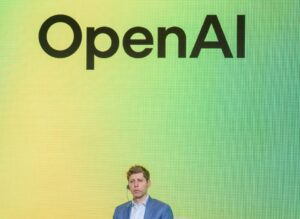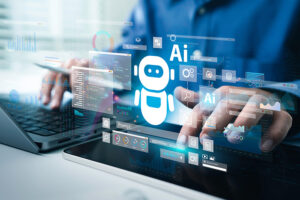Google Unveils New AI Model for Robotics, Competing with Meta and OpenAI

Google Introduces New AI Models for Robotics
Overview of Gemini Robotics
Alphabet’s artificial intelligence division has unveiled two innovative models aimed at addressing one of the biggest hurdles in robotics: teaching robots to operate effectively in unpredictable environments. These advancements come from Google DeepMind, which has announced the launch of Gemini Robotics, a new subset of its primary AI framework designed to enhance robotic dexterity and interaction. Additionally, a specialized model known as Gemini Robotics-ER will assist robot manufacturers in creating software that leverages Gemini’s advanced reasoning capabilities.
Bridging the Gap in Robotics
DeepMind engineer Kanishka Rao emphasized the necessity for robots that can navigate complex, dynamic environments, stating, "Our worlds are super messy and dynamic and rich." With these new models, Google aims to evolve towards creating “general purpose robotics,” which can perform a wide array of tasks, much like humans can.
The renewed interest in robotics has garnered significant investments from major tech players including Meta Platforms Inc., Tesla Inc., and OpenAI. Many startups are also seeking funding at unprecedented valuations, underscoring the shifting landscape of the robotics industry.
Practical Demonstrations of Gemini Technology
During a presentation showcasing Gemini’s potential, researchers from Google demonstrated the capabilities of robots powered by this technology. One notable instance involved a robot that successfully spelled the word “Ace” using scattered letter tiles after receiving a verbal command from a trainer.
In another exciting display, robots interacted with a small toy basketball court. When instructed to perform a dunk, one of the robots was able to push a toy ball through the hoop, showcasing its ability to understand and execute physical tasks based on concepts it had never encountered before. Rao expressed the team’s thrill at the robot achieving this feat, stating, “It’s because the robot has never ever seen anything related to basketball.”
The Evolution of Google’s Robotics Efforts
Google’s relationship with robotics has evolved significantly over the past decade. Initially, the company acquired several robotics firms to further co-founders Larry Page and Sergey Brin’s vision of intelligent consumer robots powered by machine learning. These efforts eventually merged into Google X, Alphabet’s experimental innovation lab. In 2021, a new initiative called Everyday Robots was launched, focusing on robots that performed daily tasks, such as sorting trash. However, this project was shut down in 2023 due to significant budget cuts.
Despite these setbacks, Alphabet has not completely withdrawn from the robotics space. Instead, the company consolidated its efforts and is now reenergizing its robotics initiatives through the lens of generative AI.
Safety and Future Implementation
During the product briefing, Google clarified that the development of these robotics models was still in the “early exploration” phase. Vikas Sindhwani, a research scientist at DeepMind, highlighted that the Gemini models were built with a robust understanding of safety in physical environments. The plan is to deploy these robots cautiously at first, maintaining safe distances from humans. Over time, the goal is to increase their interactive and collaborative capabilities as they demonstrate improved safety measures.
Partnerships and Testing
Google is set to collaborate with various companies to explore the applications of Gemini’s robotics capabilities in real-world settings. For example, it’s teaming up with Apptronik to create humanoid robots. Other partnerships include Agile Robots and Boston Dynamics, a company that was originally part of Alphabet before being sold to SoftBank in 2017. These strategic collaborations aim to push the boundaries of what robots can accomplish, leveraging the advanced capabilities of the Gemini models in practical applications.
In summary, Google’s launch of the Gemini Robotics models marks a significant step towards realizing the dream of creating intelligent, versatile robots capable of navigating complex tasks and environments. As development progresses, the integration of advanced AI with robotics may reshape industries and redefine human-robot interaction.






